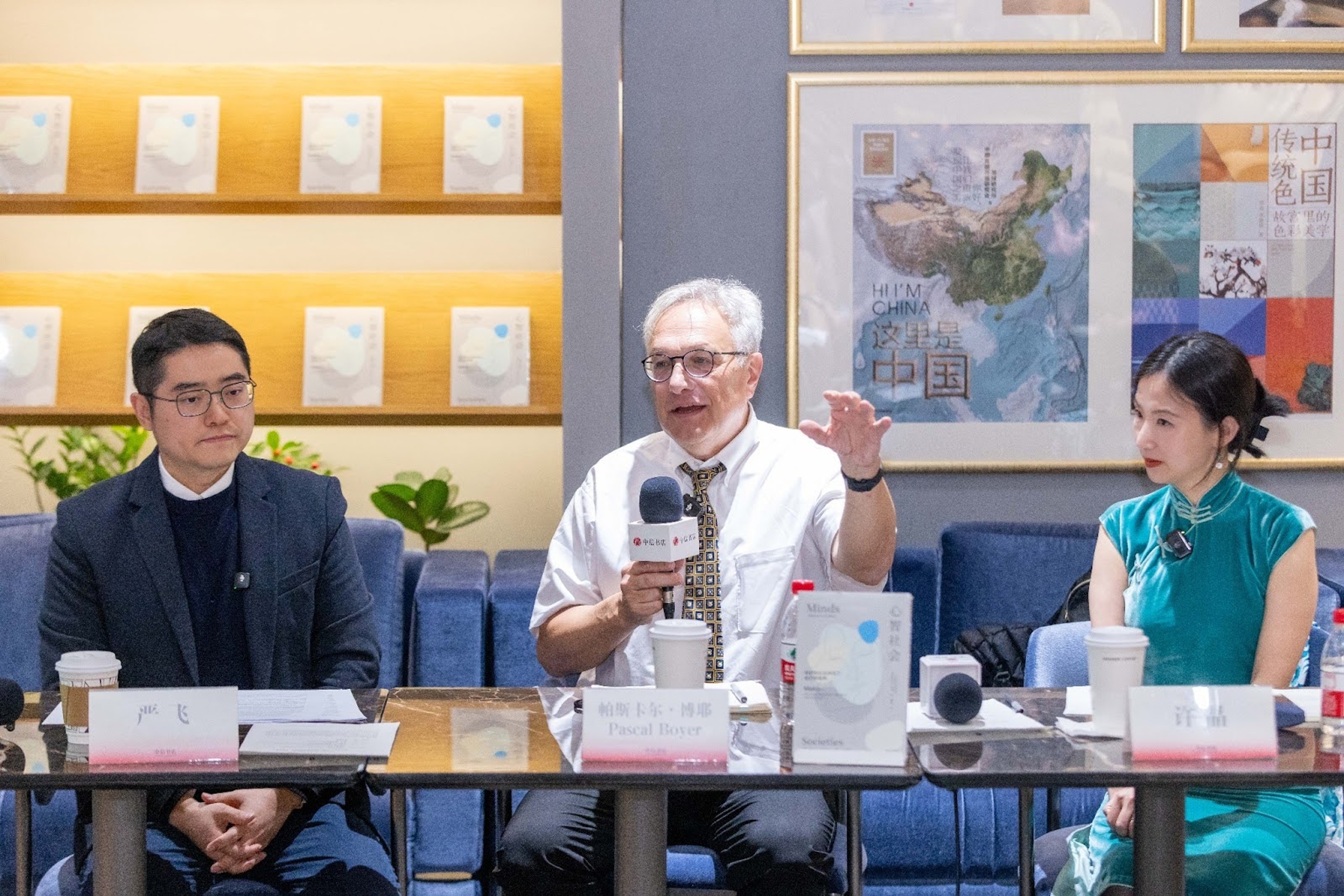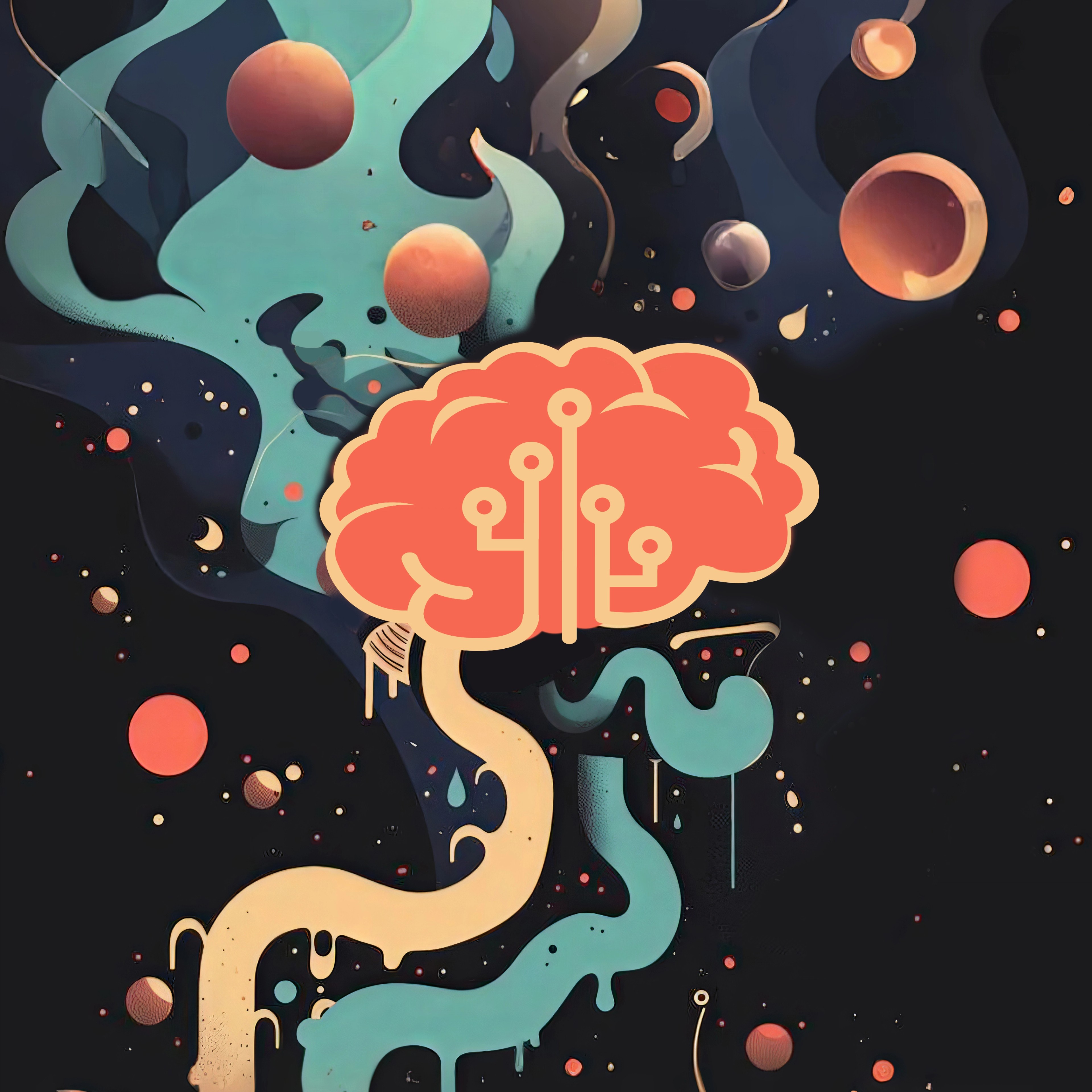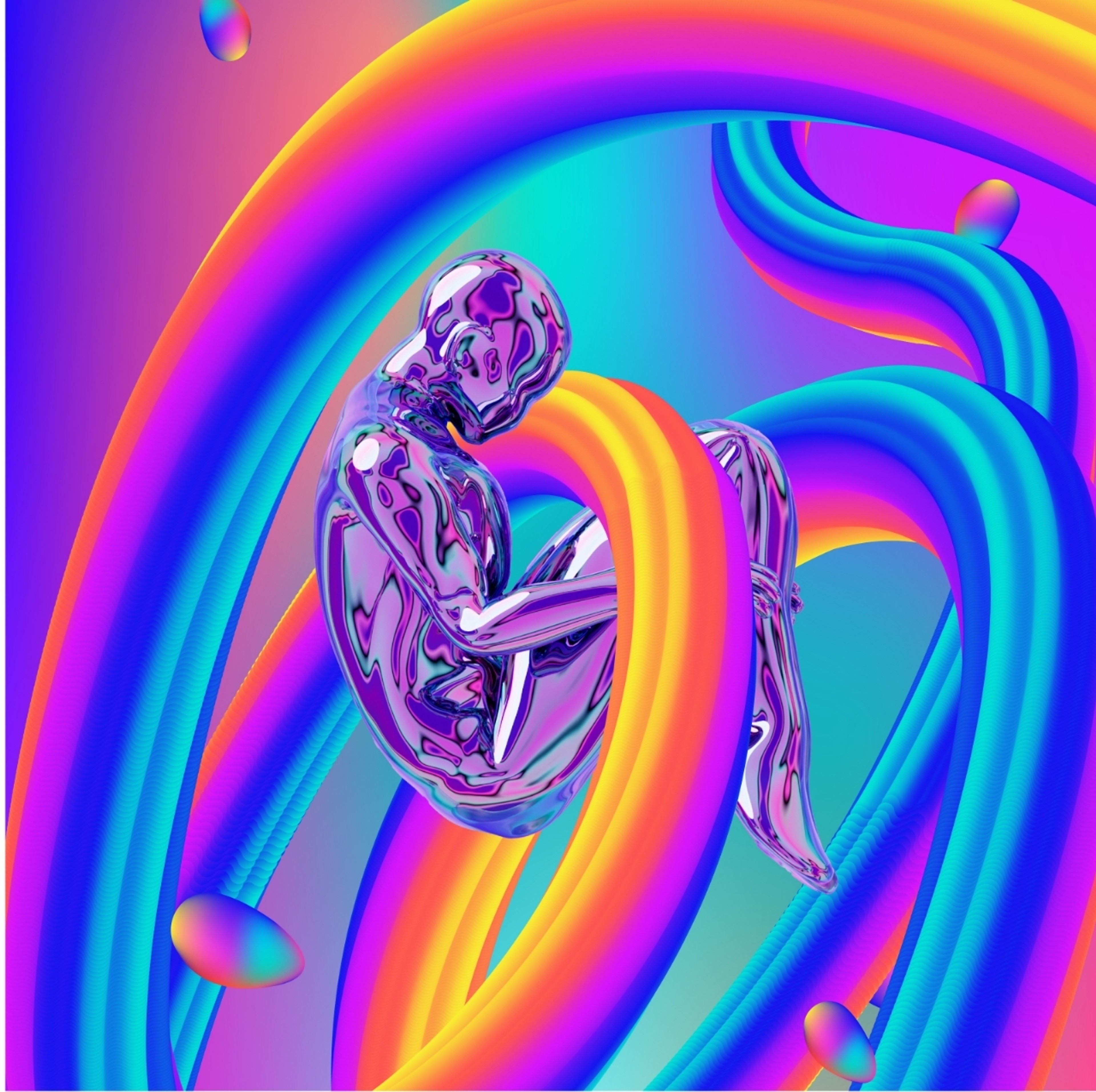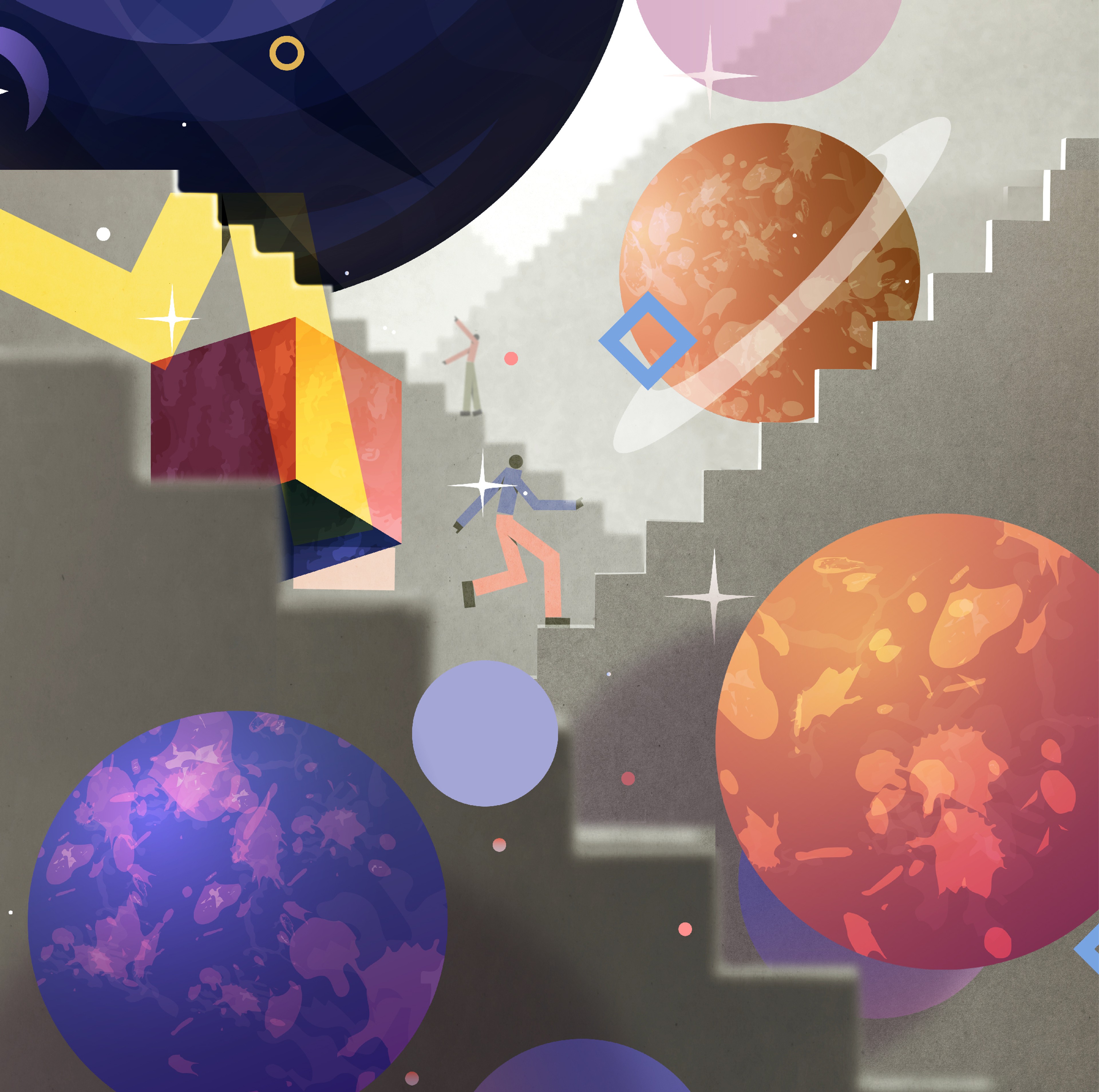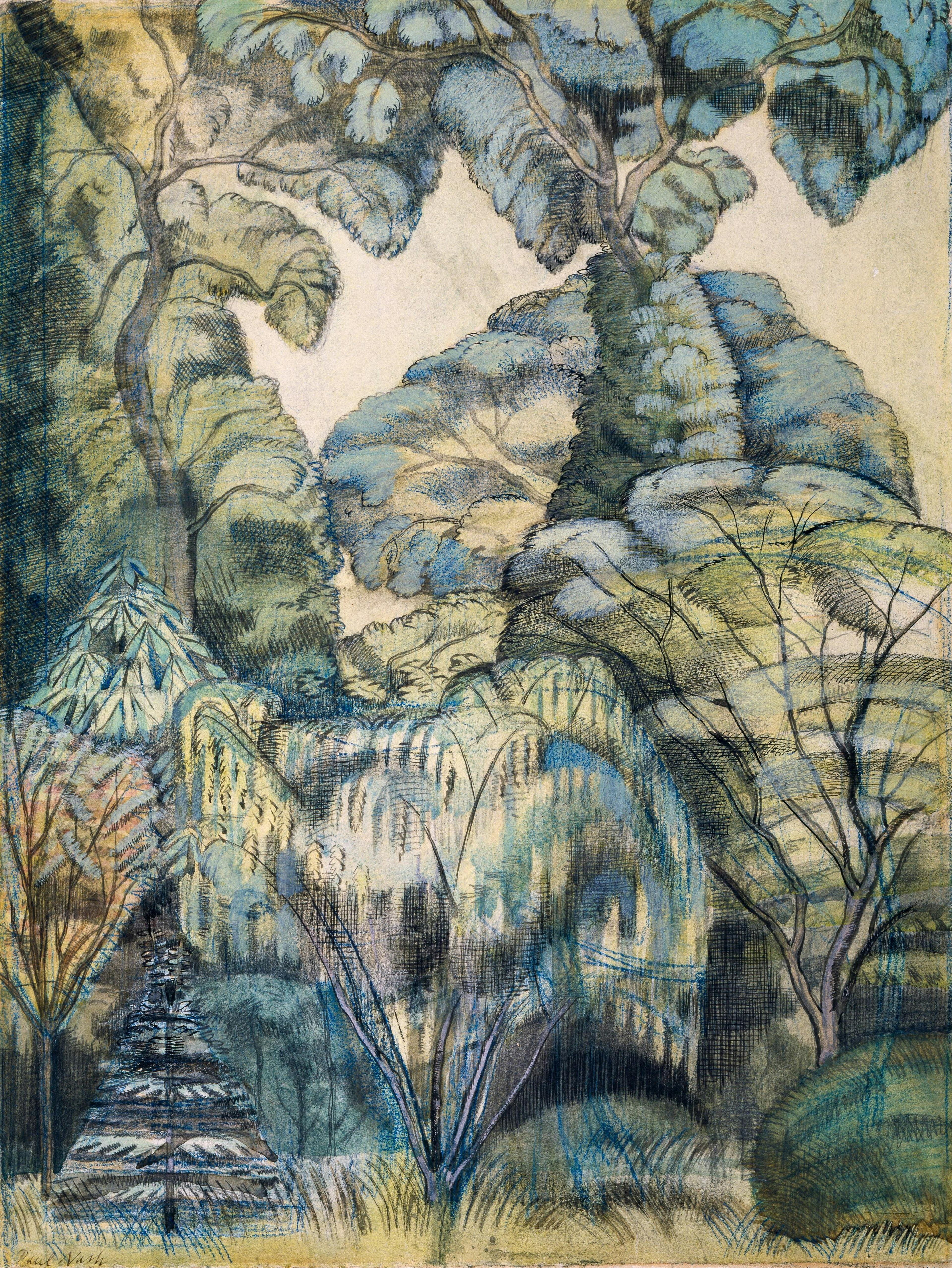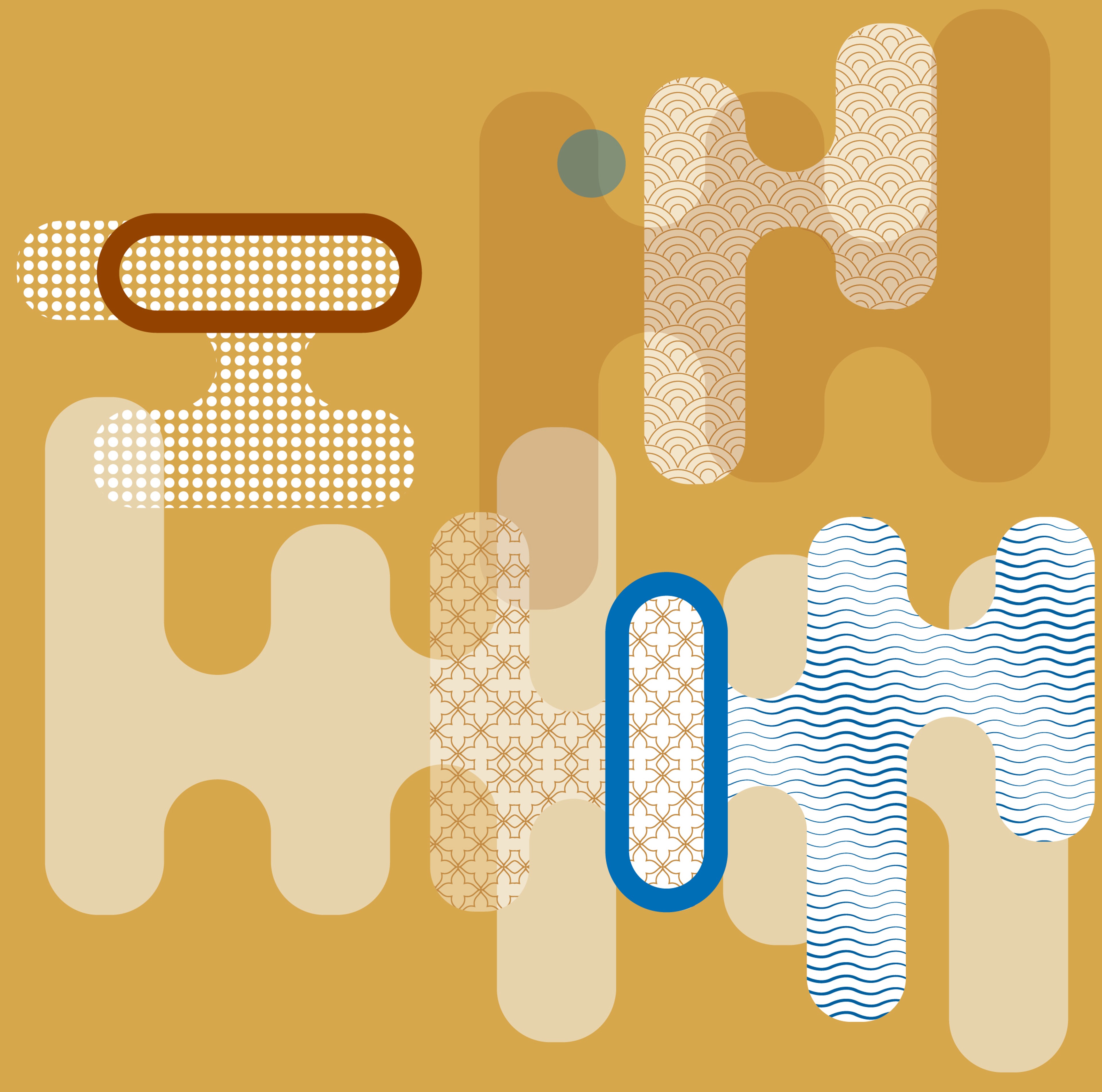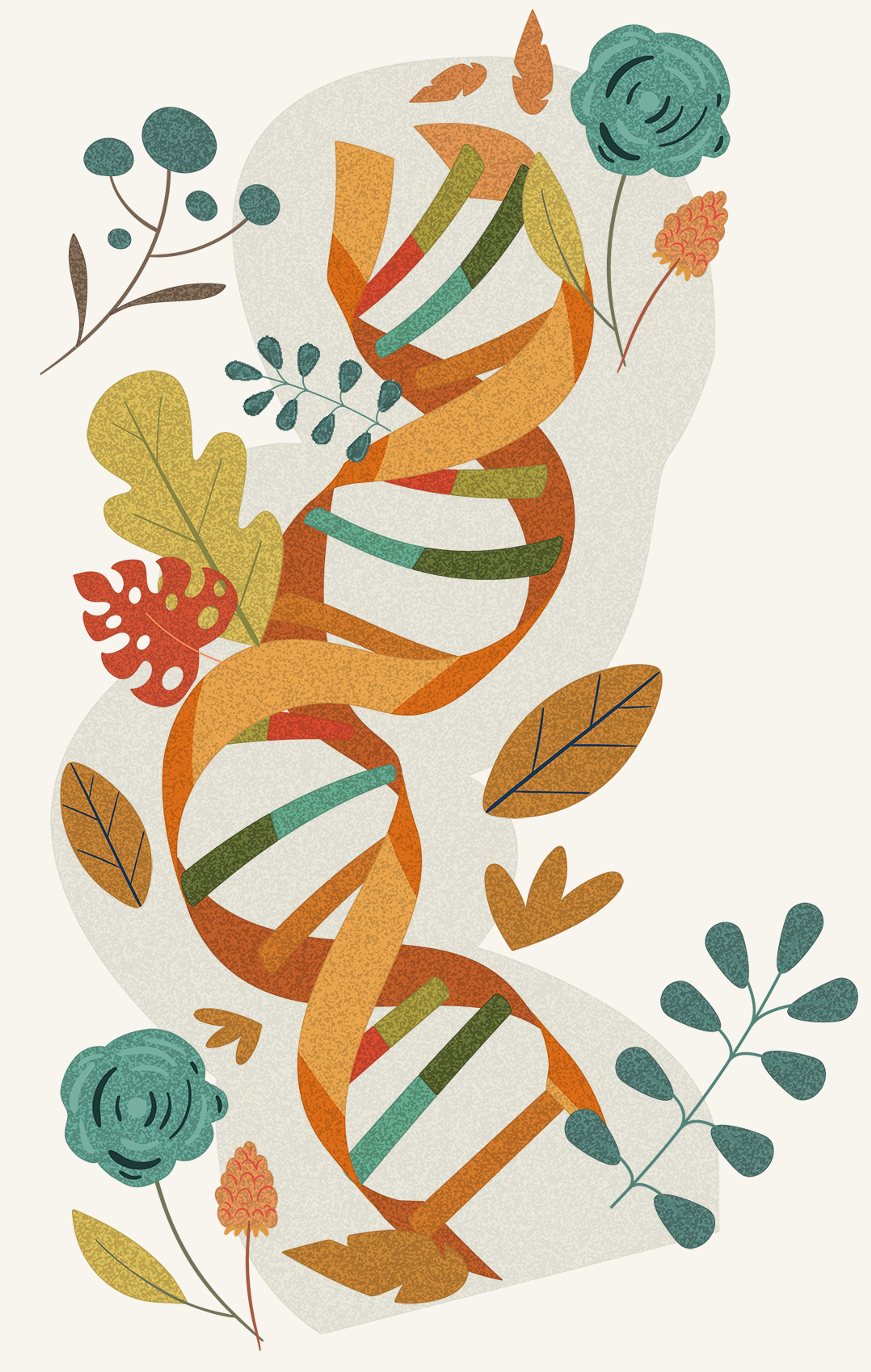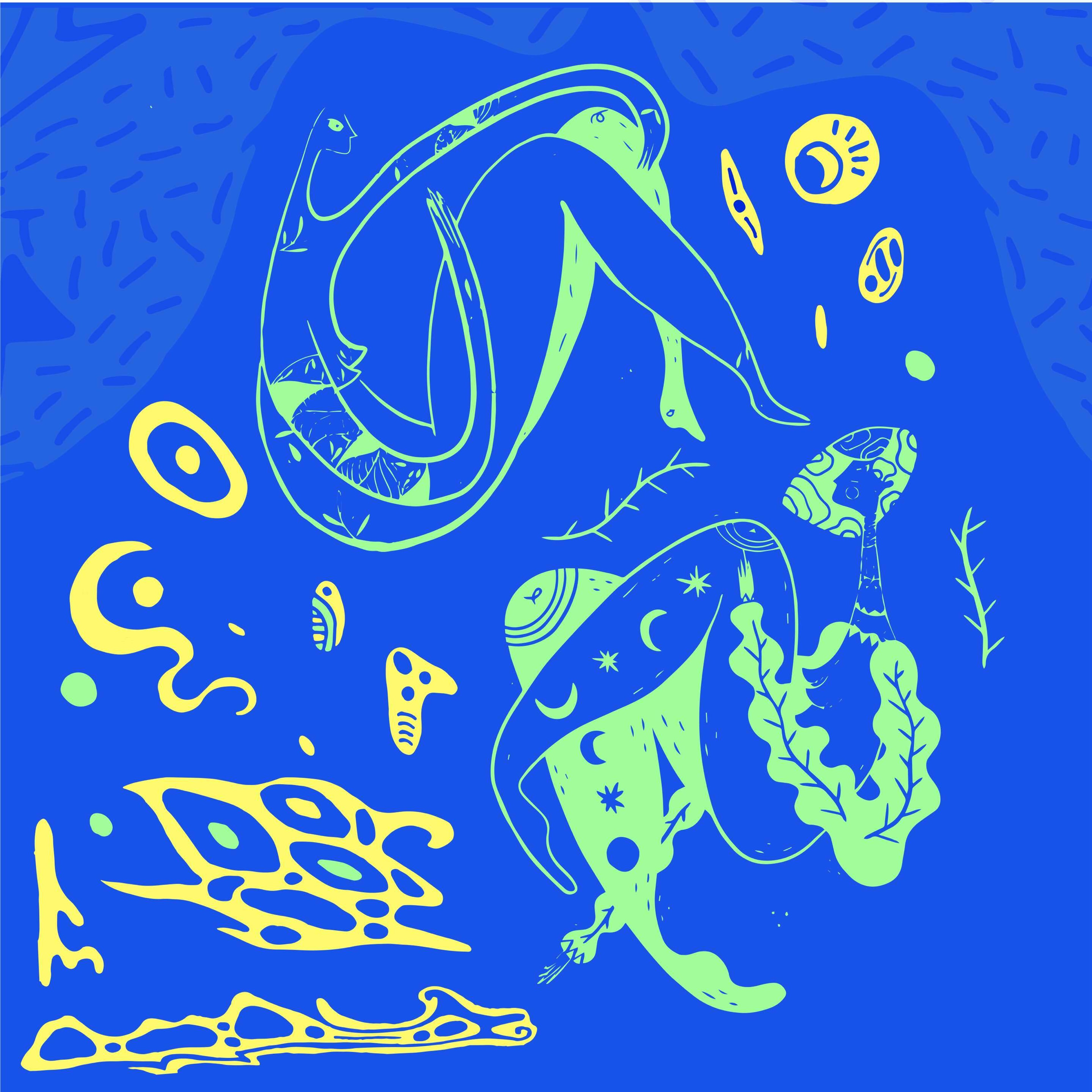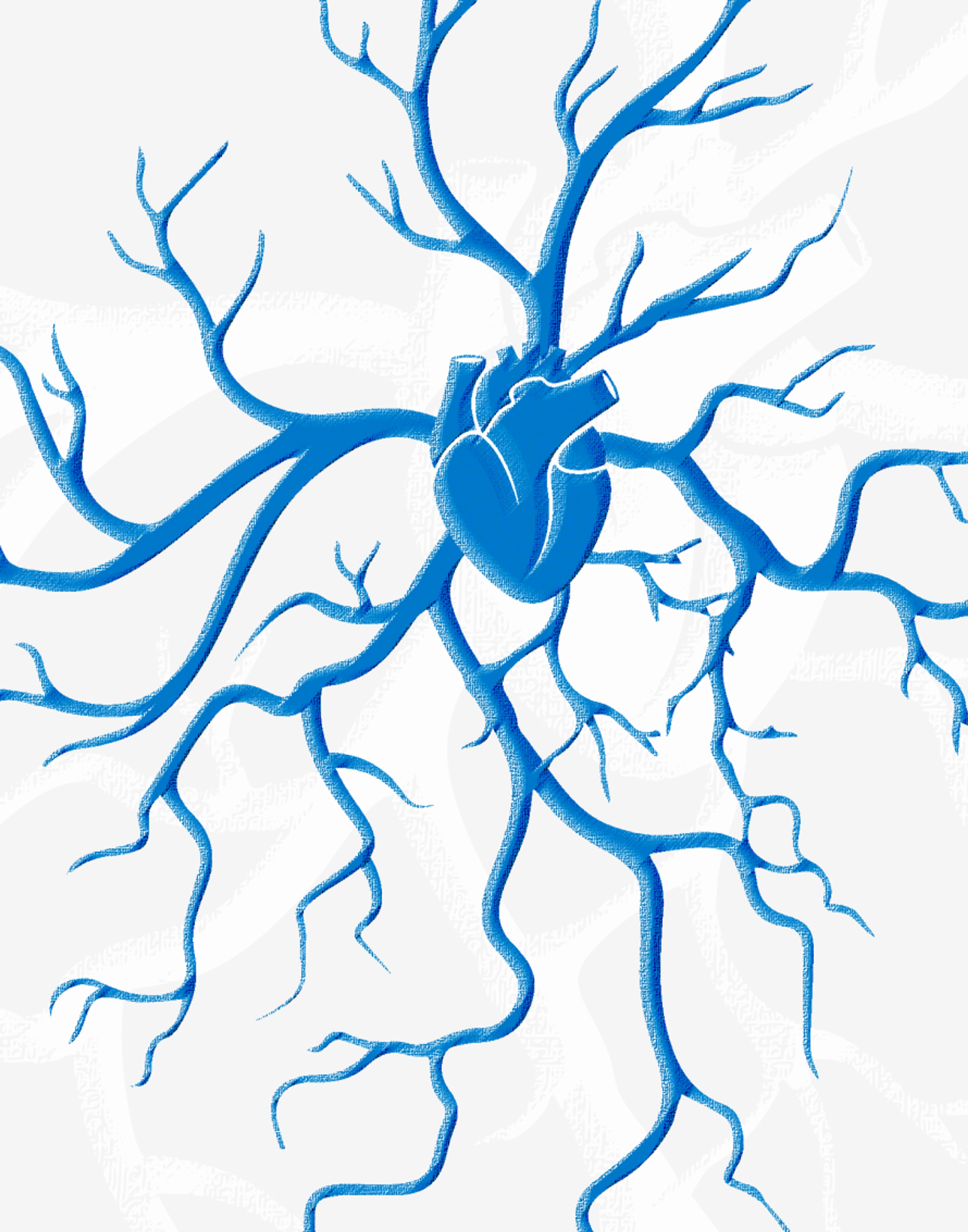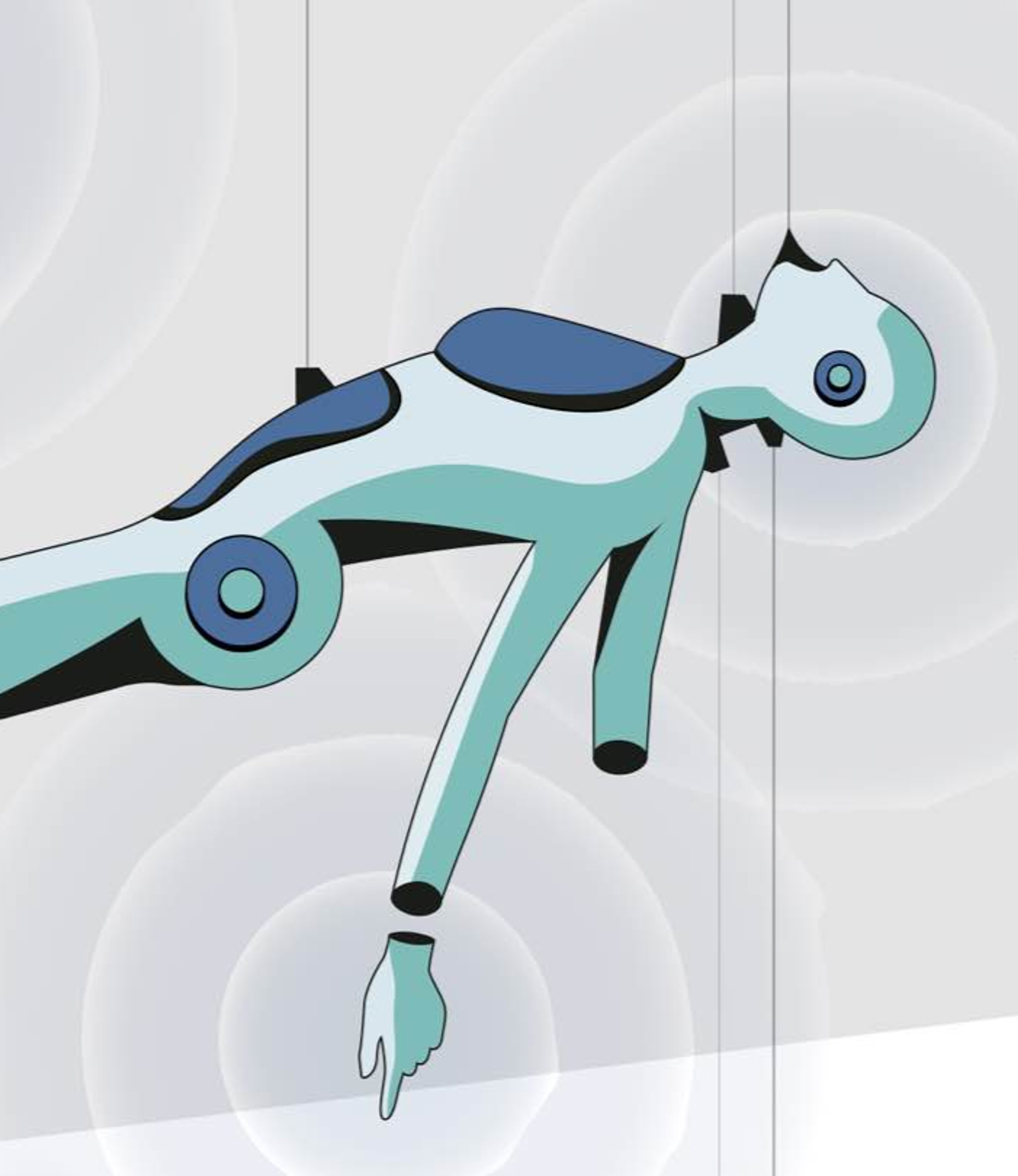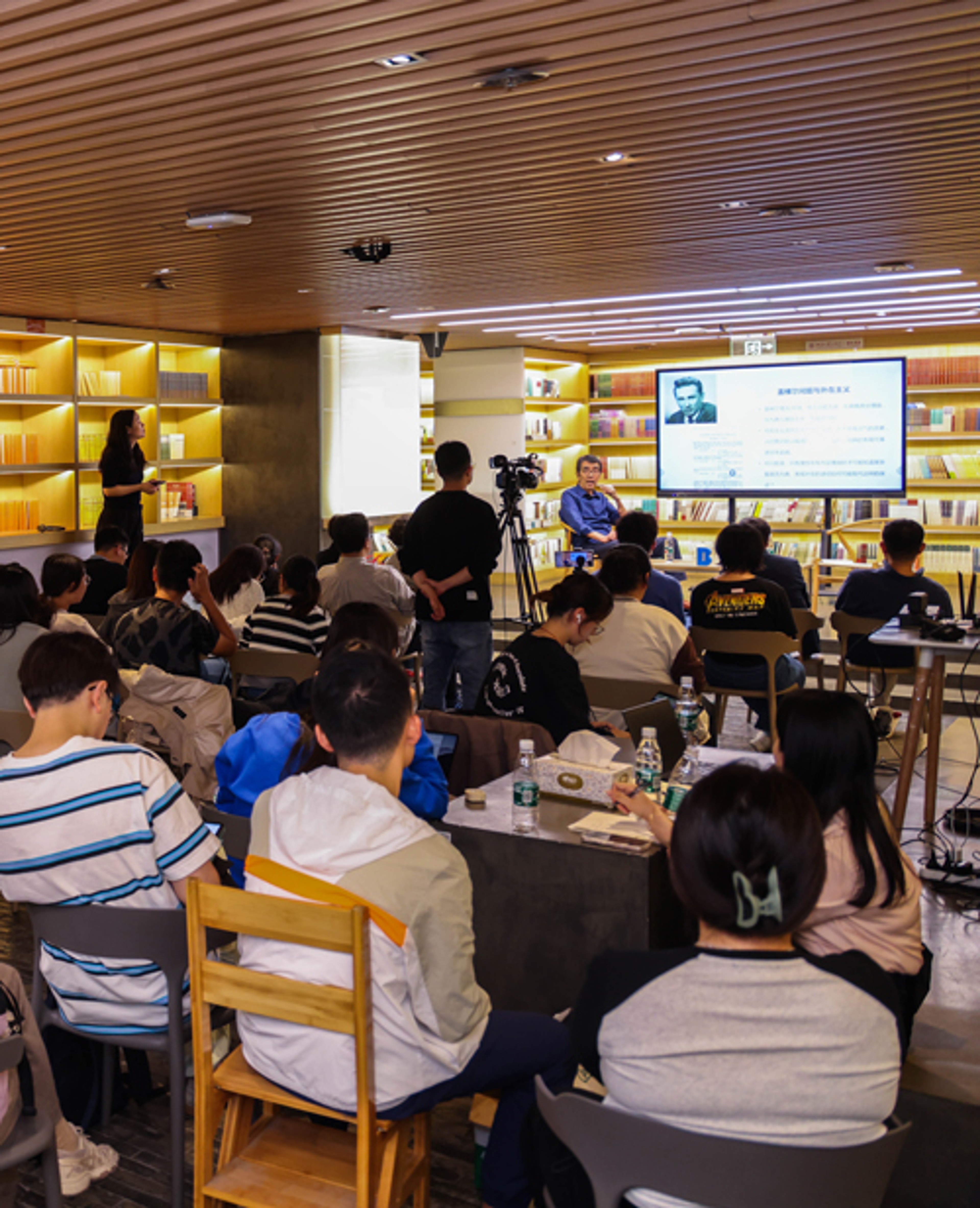The Elusive Body: From Daoism to Digital Selves

- Date: December 17, 2024
- Location: Citic Bookstore (Sanlitun), Jiaming Center B1, Beijing
We live in our bodies. It is through them that we exist and perceive the world. Embodiment is perhaps a necessary form of our being. The conception of the body is a reflection of where we are in the world, and it shapes our conception of what the world is in itself. The contemporary naturalist conceives of the body as a composite of biological-physical structures. This simplistic view, however, not only overlooks debates surrounding the body in the history of Western philosophy but also ignores the role of the body in other traditions.
Chinese Daoism, however, regards the body as the intersection of various elements in the universe. They perceive the Tao through their bodies. Taoists are often regarded as committed to a naturalistic philosophy, yet how do they embrace completely different perspectives of the self, the body, and the world? Could it be that the differences in how we understand bodily experiences across cultures are responsible for the distinction of worldviews we have today?
By exploring the notion of the body from naturalism to Daoism, and further expanding this into the realm of cybernetics and future digital life, it appears that the notion of the body continues to elude us. Yet, while we may fail to possess a common and determine idea of what the body is, we may be moving towards a more holistic understanding of embodiment.
Speaker
ZHANG Xiaoxing
Professor of Philosophy at Yunnan University
2024-2025 Berggruen Fellow
Dr. Zhang Xiaoxing’s research interests include modern philosophy, practical knowledge-how, social epistemology, Daoism, Christian mysticism, and analytic comparative philosophy. His book Socrates in Love: Ten Introductory Lectures of Philosophy (Chinese) was published by Tsinghua University Press in 2020. His papers are published in venues such as Philosophical Studies, Analysis, Synthese, Ergo, Inquiry, Religious Studies, and several leading philosophy journals in Chinese.
Commentators
CHEN Xia
Research Fellow, Institute of Philosophy, Chinese Academy of Social Sciences
2022-2023 Berggruen Fellow
Dr. Chen Xia research specializes in Chinese philosophy and religions, with a particular focus on Daoism. Chen has published books including Daoist Ethics: Traditional Expressions and Contemporary Interpretations (Chinese, 2023), Body in Daoism: An Ecological Perspective (Chinese, 2019), Introduction to the Philosophy of Daoism (Chinese, 2017), among the others. She has also contributed to various notable translations and has published hundreds of articles in both Chinese and English journals.
FEI Duoyi
Professor of Philosophy, China University of Political Science and Law
Dr. Fei Duoyi works on adopting an analytic approach to the philosophy of science, metaphysics, and epistemology. Her books include A Study on the Mind-Body Problem (Chinese, 2018), and Beyond the Brain: How the Mind and the Body Shape Each Other (English, 2023). Her academic papers include “Disposition: The Concept of Causation Reconstructed,” “Meno’s Paradox: How Reason Warrants Knowledge?” and “Comparative Perspectives on Solutions for the Problem of Other Minds.” She is also co-translator of Quine’s philosophical papers and Routledge History of Philosophy.
Summary
On the evening of December 17th, the 33rd installment of the Berggruen Lecture Series, "The Elusive Body: From Daoism to Digital Selves" was held at CITIC Bookstore in Sanlitun, Beijing. The lecture was delivered by Zhang Xiaoxing, a professor of philosophy at Yunnan University and a 2024-2025 Berggruen Fellow. Following the lecture, a discussion was co-moderated by Chen Xia, a researcher at the Institute of Philosophy of the Chinese Academy of Social Sciences and a 2022-2023 Berggruen Fellow, and Fei Duoyi, a professor of philosophy at the School of Humanities of the China University of Political Science and Law.
Zhang’s lecture explores various debates about the body in modern Western philosophy. He discusses the "mind-body dualism" rooted in the Christian worldview, contrasts it with the "qi-based monism" of Taoism, and highlights the shift in modern Western scholarship toward a socio-cultural framework. This framework is seen as an important factor in understanding and shaping the body, along with the different conceptions of the body and its interpretation from multiple perspectives. Additionally, the three teachers use the concept of cyborgs and digital life as a reference to explore how the fundamental worldviews of Western philosophy and Taoism might perceive future forms of embodied life. This exploration aims to help us better understand the connections between the body, life, consciousness, and the world.
From "Mind-Body Dualism" to "Qi-Based Monism": Comparing Christian and Taoist Views of the Body
Zhang Xiaoxing began by enumerating phenomena related to the body in daily life, emphasizing that the concept of "body" has a dual nature: it is both an object that is observed, shaped, and used, as well as a dynamic existence, a way of being for the embodied agent. The two forms of the body—objective and subjective —roughly correspond to the relationship between body and mind, which is to say between matter and consciousness, in the Western philosophical tradition. From the Western viewpoint, this difference is understood through the lens of mind-body duality, with Descartes' mind-body dualism serving as the classic example.
"Descartes' mind-body dualism emphasizes that the material body and the mind-consciousness are two completely different types of existence. The material body occupies space and possesses geometric and physical properties, while the mind, as consciousness, lacks these physical attributes and does not need to perish with the body. Descartes' dualism aligns with the Christian doctrine that 'the body is mortal, but the soul is immortal.' Mind-body dualism was proposed within the context of Christianity, reflecting an inherent need for the survival of the Christian worldview. At the same time, Christianity's framework of mind-body dualism takes God as an infinite transcendent entity, distinct from both body and mind. Christianity therefore, as interpreted by Descartes, presupposes a triadic worldview between body, mind, and God.
Zhang Xiaoxing points out that this triadic Christian worldview had faced at least two classical philosophical dilemmas. First, the causality between the material body and the immaterial mind is a difficult phenomenon to explain. If the mind is immaterial, it is definitionally separate from a material body, and any attempt to explain the interaction between the two must establish an account of how immaterial and material substances can affect one another. Secondly, if God as a "transcendent entity" is outside of space and time, how could his properties be known. Recent attempts to rationally prove the existence of God have failed for the most part, and direct mystical perceptions of God cannot be verified from a human perspective.
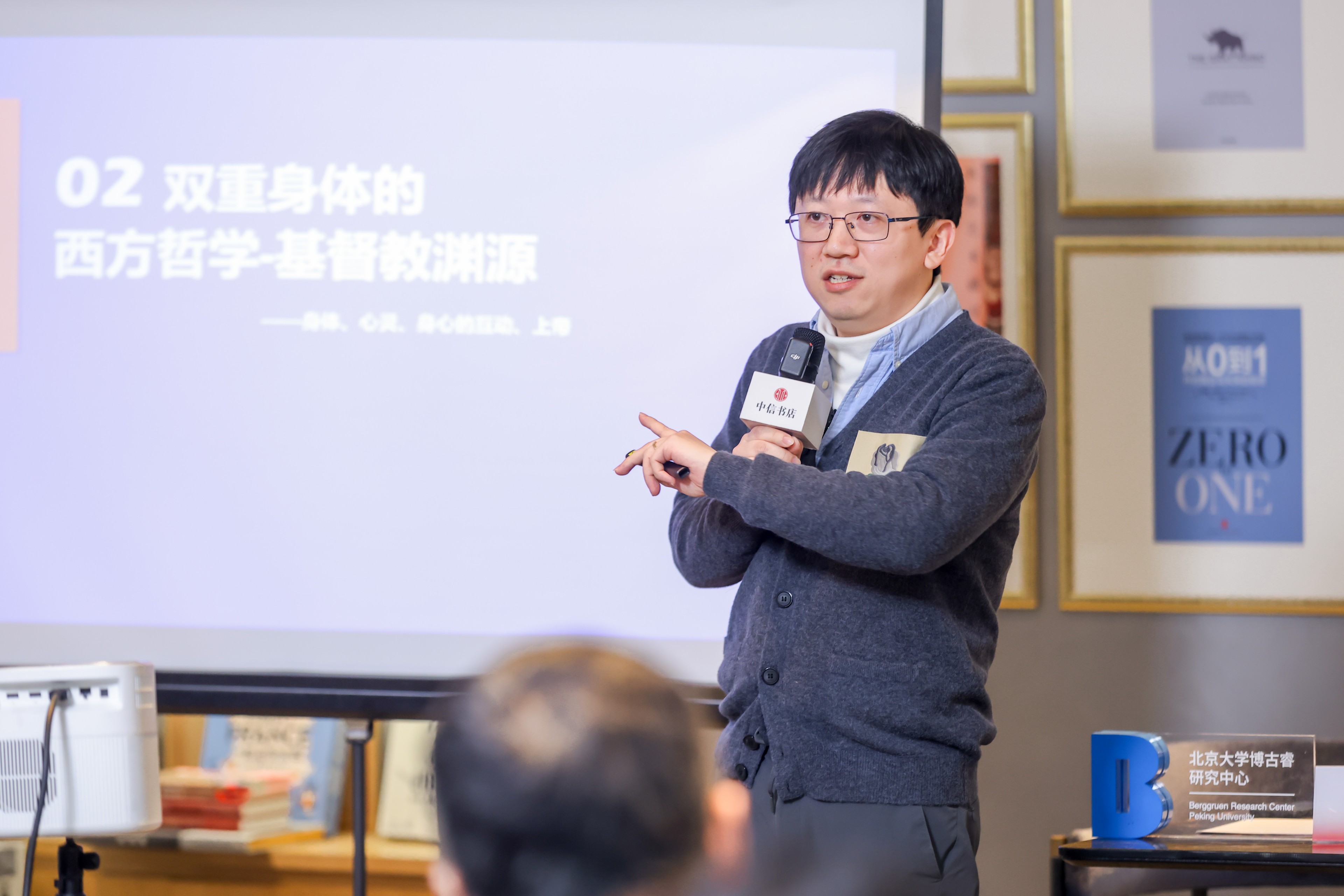
The naturalistic worldview we default to today can be seen as the legacy of the Christian triadic worldview. By eliminating God and the immaterial mind, contemporary naturalists retain only material existence in their ontology. This is a result of the demystification of scientific development. From a multicultural perspective, however, the contemporary naturalistic worldview is still the result of the "subtraction" of the Christian framework. In this sense, Zhang Xiaoxing believes that Eastern Taoist philosophy, as a completely different system, offers new perspectives and can partially address some classical questions within the Christian worldview.
Although Taoism also recognizes the difference between subjective and objective perspectives of the body, it has never theorized a dualistic approach to the world. It is widely recognized that although Taoism lacks a strict ontology, it upholds the philosophical idea of "qi monism." The "qi" that underlies Taoism is neither material nor spiritual but an ever-changing energy in the relationship between yin and yang and the five elements, which can be manifested as either material or spiritual. The ultimate truth of Taoism, known as "Tao," is not a transcendent entity like God; rather, it is internalized within all things in the world and manifested in the flow of qi, forming a monistic and indivisible unity.
Compared with dualism, Taoist thought better explains the relationship between mind and body. Mind and body are no longer two different types of entities but two forms that unfold in the interaction of qi. Qi monism makes the ultimate truth knowable. The Tao exists within qi, which operates within the dimensions of space and time. The sensation of qi that practitioners attain during their cultivation points to the qi-Tao state within space and time, allowing for the possibility of verifying its authenticity from the human perspective.
Taoism views the body as a hub of energy that corresponds to everything in the universe. The Taoist definition of the body is not something that can be directly controlled as a subject of action but "a link between the individual being and the universe of heaven and earth," reflecting a larger cosmic view. Therefore, Taoism does not emphasize the body as a collection of matter in the anatomical sense but rather the body's function of energy exchange. Furthermore, since the "symbolic hub" of the individual's correspondence with the universe does not require fixed boundaries, Taoism does not regard the boundaries of the body as a central issue.
As technology advances, concepts such as cyborgs and digital life have transformed our understanding of the body. In a broader discussion, Zhang Xiaoxing explores the differences between Eastern and Western philosophical frameworks and their perspectives on the body to make sense of these phenomena. The possibility of cyborgs suggests that the body does not have to be composed of biological material but can also include prosthetics, exoskeletons, and brain-computer interfaces. These "human-machine symbiotic" visions transcend traditional biological boundaries of the body, allowing for a subjective understanding of the body that is no longer limited by space.
According to Zhang Xiaoxing, the emergence of cyborgs not only suggests that the boundaries of the body are unclear, but also that the body does not need to satisfy spatial proximity. In an "Avatar-like" situation, the brain can manipulate a distant body even when separated from it in space. Cyborgs could further challenge our preconceptions of bodily relations between subjects. For instance, if multiple people share an exoskeleton, is there a clear distinction between their bodies? The idea of uploading consciousness into the virtual reality of digital beings also poses a new challenge to the view of the body. Do digital beings still have bodies? If so, is the body in virtual reality, or is it the hardware that hosts the virtual program?
Zhang Xiaoxing believes that Taoism does not deny the possibility of cyborgs and digital life, but it rejects viewing them as a complete form of the body because they do not align with the operational principles of bodily energy, such as meridian flow (zǐ wǔ liú zhù). Thus, although Taoism and the current naturalistic worldview share similar judgments regarding the extension of the biological body, their assessments of cyborgs and digital life differ. Of course, when talking about the Taoist view of the body, two points should be distinguished. First, how does Taoism describe the real body, and second, what are the essential Taoist definitions of the body? Perhaps concepts such as meridian flow are merely Taoist descriptions of the real body and need not constitute essential elements in their view of the body. Distinguishing between these two points helps to illuminate Taoism's potential views on future forms of the body with a more open perspective.
Expanding Open Body: A Multidimensional Interpretation of the Taoist View of the Body
Chen Xia elaborates on the Taoist perspective on the body from multiple levels. She points out that within the Taoist philosophical system, "body," "physicality," and "life" hold significant importance. Key figures in Taoism, such as Laozi and Zhuangzi, emphasized that the body takes absolute precedence over external possessions (whether wealth, fame, or the world); the body is original, primary, natural, and pre-existing. Concepts like "My fate is in my hands, not in heaven" and slogans such as "The way of immortality values life," along with various practices of health maintenance, reflect Taoism's emphasis on the body.
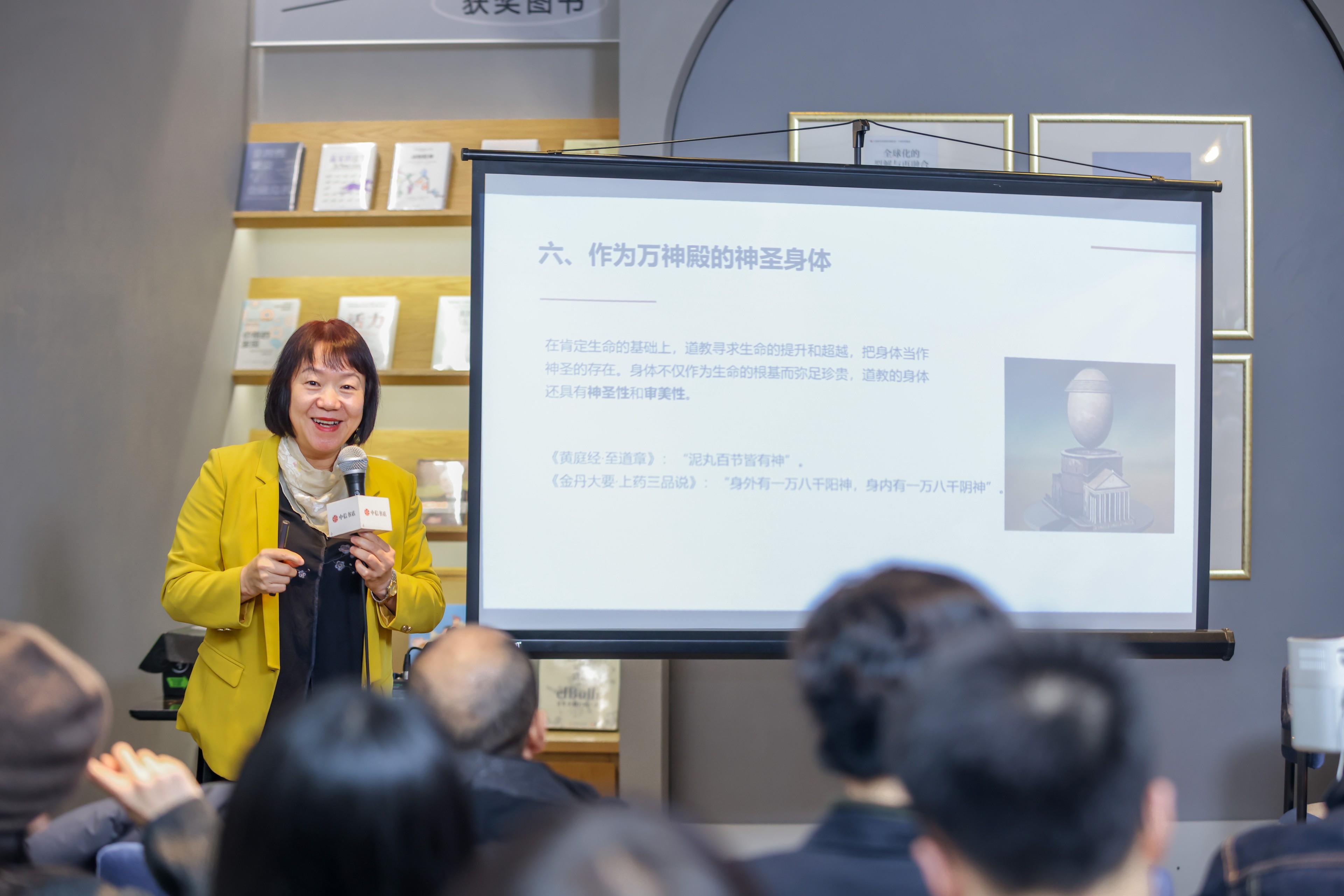
The primacy of the body is reflected not only in the emphasis on life but also in the various extensions and projections of the body that Taoism pursues by breaking its boundaries, as well as in the interactions between the body and the world. Chen Xia agrees with Zhang Xiaoxing’s perspective on the Taoist perception of bodily boundaries, calling upon Zhuangzi's famous ‘Dream of the butterfly’ to argue further that Taoism constantly attempts to blur the boundaries between the body and the external world.
Taoism regards the state as a body, thus imbuing the physical body with political significance. Therefore, governing the state should follow the natural order and align with human nature, advocating for a policy of non-action (wu wei). Furthermore, Taoism perceives heaven, earth, the universe, and nature as a vast "cosmic body," where the human body is an inner universe that operates in harmony with nature while containing information about the operations of heaven and earth.
Taoism also extends the body into the transcendental realm. Unlike Christianity, which tends to focus on a singular divine presence, Taoism asserts that the universe is filled with various deities, each inhabiting different aspects of the body. As a result, the human body is seen as a "pantheon of gods" rather than a "prison for the soul," a notion some Western philosophers have proposed.
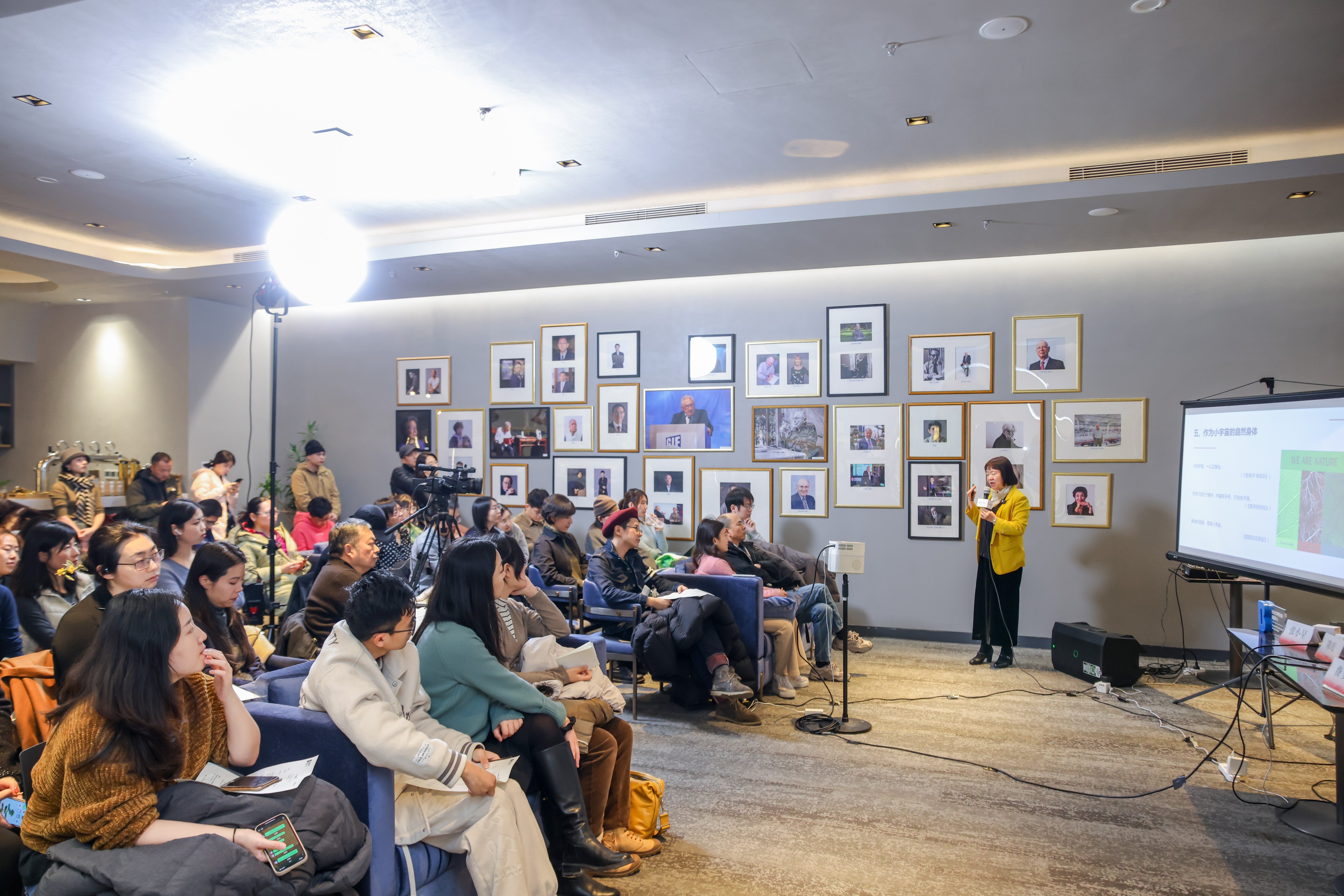
Furthermore, the body is regarded as aesthetically pleasing in Daoist discourse. Daoist terms like huagai (eyebrow), yuqi (back of the head), linguan (tongue), yudu (body), and chonglou (throat) serve as metaphors for various body parts, emphasizing their significance. Additionally, Daoist representations of the human body often resemble landscape paintings, further underscoring the value and status attributed to the body.
Chen Xia also attempts to address the mind-body relationship from a Taoist perspective, highlighting the concepts of "spiritual and physical harmony" and "the mutual need of body and spirit." These ideas reflect Taoism's pursuit of the spiritualization of the physical body and the embodiment of the spirit. In the dynamic process where "the body attains the Tao and the spirit also attains the Tao; the body achieves immortality, and the spirit likewise achieves immortality," the two continuously merge. For this reason, she argues that in the age of digital life, Taoism's efforts to preserve the body's unique perception of others and the world, to engage with the world through the body, to gain firsthand experiences, and to extend natural life while enhancing its quality are increasingly unique and valuable.
The Body: From Naturalization to Symbolization
Fei Duoyi argues that Zhang Xiaoxing's dialogues on the two kinds of "bodies" in China and the West have opened up a growing space of meaning through meticulous investigation.
Fei offered an alternative perspective on body studies, suggesting that the exploration of the body traditionally faced a choice between mind-body dualism and naturalistic interpretations. Similar to Descartes, who frequently appears in discussions, he viewed the body and mind as fundamentally distinct entities. However, starting in the 19th century, philosophers began to reevaluate not only reason, emotion, thought, and will but also the human body and its intricate relationship with the mind. Unifying all of these theories is an affirmation of the materiality of the body as a means of allowing the body to be investigated at the level of social practice. In the twentieth century, philosophers aimed to diminish the naturalized view of the body by incorporating value judgments from various perspectives. This approach delved into the fundamental aspects of human society and culture, as well as the individual subject. By freeing the body from the mind-body dichotomy, they shifted the focus to the body's social and symbolic significance, exploring it through either the lens of bodily experience or its social and symbolic meanings.
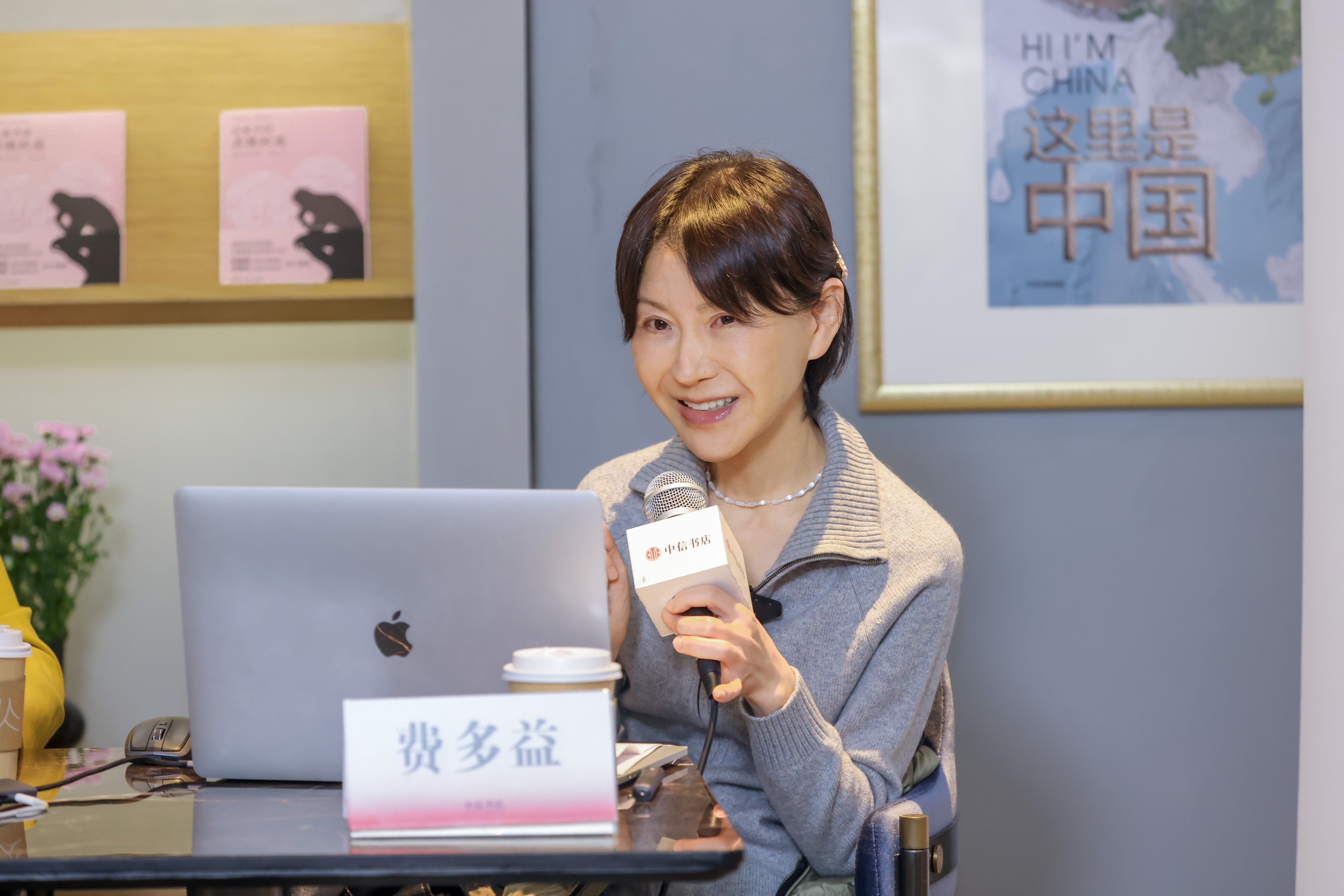
The body is no longer sovereign but a living body that is incorporated into the material world; it includes both the active body as an experiential structure and the body as a cognitive mechanism in unique environments. Retroactively, the functioning and operation of the various parts of the body are also, to a large extent, influenced by the environment, and the effects of its actions are directly presented in social cultures. For example, it may be assumed that the fact that a man has large muscles indicates that he is strong, thus reflecting his masculinity. However, in the dominant culture of modern and medieval times, it was common to associate muscles with professional competition, manual laborers, and even shackled prisoners. Today, however, a muscular body no longer signifies underclass status but rather a person who loves and cherishes himself, possesses an abundance of vitality, and embodies a sense of self-discipline and willpower.
Overall, modern body theory has moved away from the mind-body dichotomy. However, intriguing oppositions persist in body-centered research. For instance, in terms of ontology, scholars grapple with the choice between foundationalism and anti-foundationalism. Similarly, in epistemology, debates arise between constructivists and anti-constructivists. Therefore, according to Fei, the best approach is to break the dichotomy between epistemology and existentialism, between body ontology and representation, and to emphasize the plurality of the body itself. In doing so, the body is affirmed as material, experiential, desirous, mutable, and alive while at the same time retaining its intellectual, emotional, and social relevance. This emphasizes the need to examine the body's internal structure, organization, constraints, and protections, alongside managing its desires, passions, and needs in alignment with social organization and stability. Through this integrative lens, the body emerges as a manifestation of the fundamental differences among individuals.
To conclude, Fei Duoyi asked Zhang Xiaoxing this question: If digital life can become a part of the body, is there an essential difference between cheating on exams and obtaining answers to test questions through digital life?
---
Drafted by: Berggruen Intern Ma Lin
Translated by: Berggruen Intern Nick Corvino

